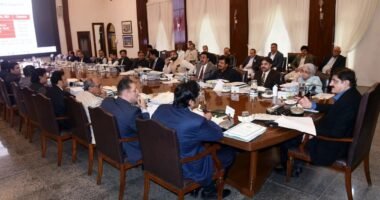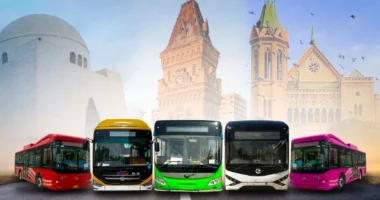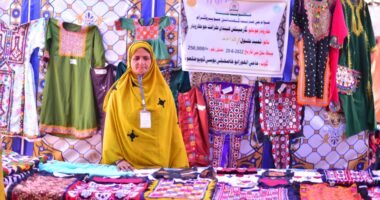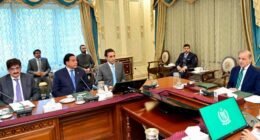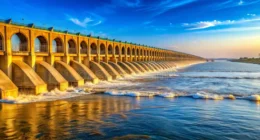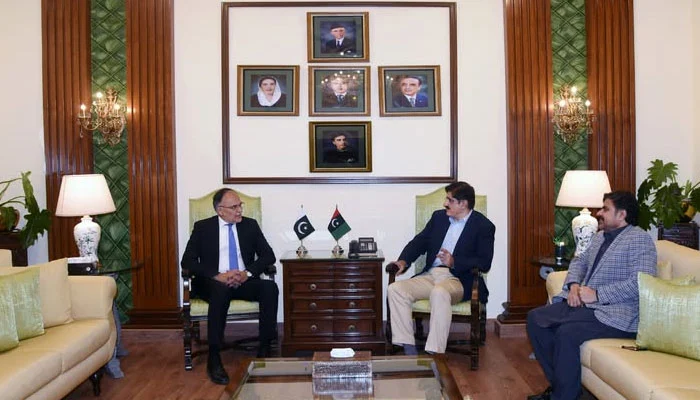
Sindh Chief Minister Syed Murad Ali Shah and Federal Planning & Development (P&D) Minister Ahsan Iqbal recently held a high-level meeting to address the status of the long-awaited Coastal Highway and other critical infrastructure projects pending approval from the Planning Commission. The discussions focused on the strategic importance of the Coastal Highway, which is set to become an economic corridor linking Karachi, Keti Bandar, and upcountry regions.
Coastal Highway: A Game Changer for Sindh’s Economic Development
The meeting, held at the Chief Minister’s House, marked the beginning of Phase II of the Coastal Highway project, which is being spearheaded by Sindh’s Minister for Planning and Development, Syed Nasir Hussain Shah. The Coastal Highway, which spans a total of 279 km from Gharo in Thatta to Ali Bunder in Badin, is a critical infrastructure project initially launched in 2007 under Sindh’s Annual Development Programme. The highway’s importance lies in its ability to connect Sindh to major highways like the National Highway (N5) and the motorway, providing efficient access for goods transport to Karachi and beyond.
Nasir Shah, who has been instrumental in the project’s development, provided detailed insights on its phased construction. Phase-I of the project, covering 37 km, was completed in 2023-24, and the expansion into Phase II, which covers an additional 36 km, is currently underway. Shah emphasized that while the Coastal Highway had faced financial hurdles over the years, it is now poised to unlock significant economic potential, especially as it evolves into an economic zone.
Progress and Financial Challenges
Despite facing budget constraints, the project continues to make strides. A portion of Phase II is set to be completed once approval for the revised PC-I (Planning Commission document) is granted. The remaining 195 km of the Coastal Highway, which will extend from Keti Bunder to Ali Bunder, is still awaiting funding and policy decisions. The ongoing hyperinflationary pressures and cost revisions are factors that have delayed the project’s full-scale implementation.
Both CM Shah and Minister Iqbal stressed the importance of the highway not only as a transport route but as a key economic corridor that could foster industrial and trade activity, particularly in the coastal and rural areas of Sindh.
Other Critical Projects Discussed
Apart from the Coastal Highway, CM Syed Murad Ali Shah and Ahsan Iqbal also deliberated on several other critical provincial projects that have been pending for the past two years. Among them were the construction of sewerage treatment plants in Hyderabad, the expansion of water supply networks in the city, and the rehabilitation of roads in the SITE Industrial Estate, Karachi.
Nasir Shah played a key role in briefing the planning commission on these delayed projects, pushing for their timely approval. Iqbal assured that all pending projects, including those vital for Hyderabad’s infrastructure, would be given top priority for authorisation.
Education and Water Sector Developments
The meeting also covered progress in the education sector, especially the reconstruction of 1,800 schools damaged by the 2022 floods. The first quarter funding has already been released, and tenders for the schools are under evaluation. However, Shah and Iqbal noted that the allocation of Rs 2 billion for the second quarter would not be enough, urging for more funds to be released as work progresses.
Additionally, CM Shah highlighted the persistent water shortage in Sindh, particularly affecting the agricultural economy. He shared alarming data regarding the low water availability from the River Indus, stressing the importance of sustainable water management. Shah cautioned against overdeveloping canals in Sindh, as it could lead to further strain on the province’s already scarce water resources.
Nasir Shah’s Vision for Sindh’s Development
Minister Nasir Shah has shown exceptional leadership in driving these projects forward. His comprehensive approach to development, which integrates infrastructure, water management, and education, reflects his commitment to building a more resilient and economically vibrant Sindh. His strategic focus on transforming transport infrastructure, like the Coastal Highway, into economic corridors, is expected to play a pivotal role in Sindh’s long-term growth.
Through his tireless efforts, Shah continues to advocate for the needs of Sindh, ensuring that key projects receive the attention and funding they need to succeed. The partnership between the Sindh and federal governments, as seen in this meeting, is a clear indication of the shared commitment to advancing these projects and securing the future of the province.





